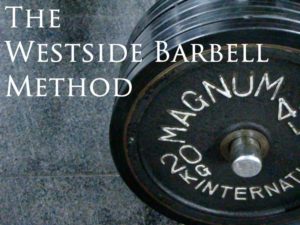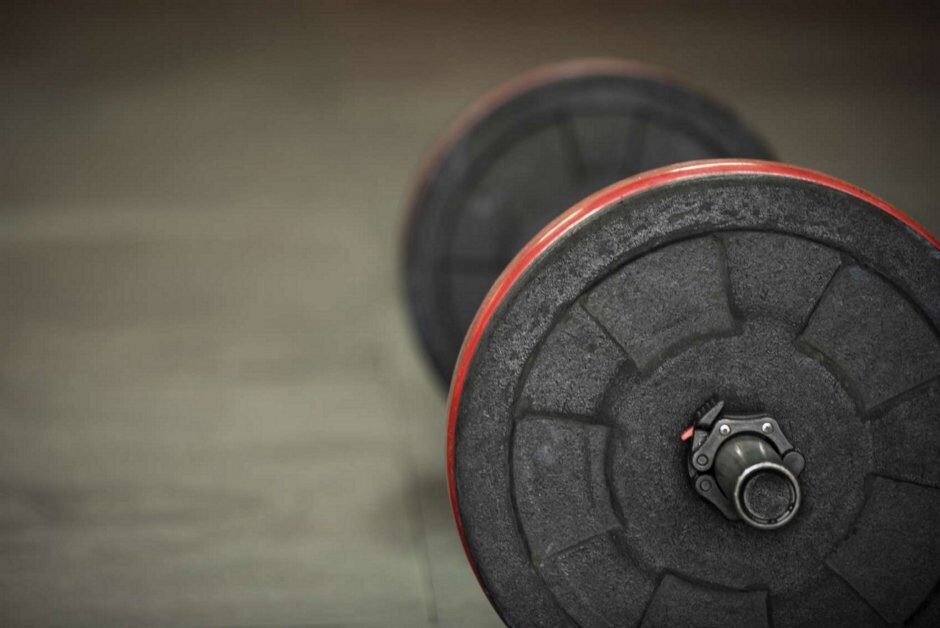The Westside Method
 The Westside Barbell Method, was developed by Louie Simmons. The methods used at Westside Barbell were developed through experimentation and through the principles of old Eastern bloc sports science literature, primarily from Russian and Bulgarian weightlifting methods.
The Westside Barbell Method, was developed by Louie Simmons. The methods used at Westside Barbell were developed through experimentation and through the principles of old Eastern bloc sports science literature, primarily from Russian and Bulgarian weightlifting methods.
It is important to realise that there is no “official” Westside program. Westside is a structure, nothing more. No two people run Westside the same way. The program is intended to be highly individualized and customized.
The Westside method is a 4-day per week training schedule using an upper/lower split or more specifically a Squat and Deadlift/Bench Press split. The Westside training method can be further broken down into The Maximal Effort Method and The Dynamic Effort Method.
THE WESTSIDE SPLIT
Monday (A) – Max-effort lower body (deadlift/squat)
Wednesday (B) – Max-effort upper body (bench)
Friday (C) – Dynamic-effort lower body
Sunday (D) – Dynamic-effort upper body
Max Effort Method
On the max effort days, you work up to a max single variation of the bench press, squat, deadlift on the respective upper and lower days in the program. A different variation should be used every week. After completing the primary lift, there is a focus on improving weaknesses through the use of up to 10 different assistance exercises. No two people will have the same accessory exercises as each program is specific to improving the weaknesses of the individual lifter.
Dynamic Effort Method
The dynamic effort bench days use 50-60 % of your max for 6-8 sets of three. The dynamic effort lower body days use 40-60% of your max for 10-12 sets of two on the box squat. Bands and chains are used to accommodate resistance. Dynamic effort is periodised in three week cycle. Starting at 50% for week 1, 55% for week 2 , and finishing with 60% for week 3.
Use of Bands and Chains
The Westside method makes use of a wide selection of bands, chains and speciality bars to achieve accommodating resistance. Accommodating resistance is such that the lifts are different to lifting with a standard bar. When using accommodating resistance the bar is much heavier near the top. The stated reason for this is to target sticking points at the top of the lift, unfortunately this will only work for lifters competing in gear, Most raw lifters have sticking points at the bottom of the lift, geared lifters get the most help from their suits and shirts at the bottom.
Specificity
One of the problems for RAW dug free athletes is the lack of Specificity, In general you need to train a specific movement to get better at that movement. Westside has several areas that lack specificity, including,
- Only free squatting at meets and solely using the box squat in training
- Only pause benching at meets
- Not deadlifting in training
Summary for Raw Powerlifting using the Westside Method
Westside is specific to geared lifting but not for raw powerlifting. Raw powerlifters will struggle to succeed on a program that, does not use the free squat, does not include deadlifting, and does not train the paused bench press. A raw powerlifter can not perfect their technique when they are always using bands and chains which change the bio-mechanics of the lifts?
The generic version of Westside that floats around the internet is not a great choice for raw powerlifters. Will you get stronger? Yes, but is it Optimal ? probably not unless you are lifting in gear.

